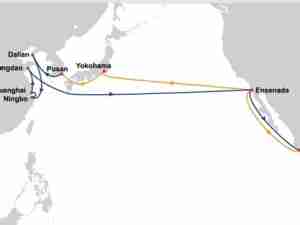As Greece struggles with mounting debt, shipping remains one of the few bright lights in an economy suffering its first recession in 16 years. Analysts expect Greek shippers to seek to position themselves ahead of any world recovery.
"Shipping is an international global business and what happens in Greece is going to have, in my view, very little impact on Greek ship owners," said Harry Theochari, head of transport with law firm Norton Rose. With the world's second-largest merchant fleet, shipping is one of the main drivers of Greece's 240 billion euro ($323.7 billion) economy after tourism. Unlike other sectors, the industry remains insulated from Greece's debt problems.
Greek shippers have been financially conservative, preserving their balance sheets during the downturn, and are adept at operating vessels at a lower cost to peers in tough conditions. Greek registered shipping companies are also exempt from paying tax on their income.
"There are many Greek ship owners with lots of money in the bank who are now sitting there and waiting for the right opportunity," said Theochari, whose company clients include financial institutions and ship owners.
With about 90 percent of the world's traded goods by volume transported by sea, the economic downturn has hit the global shipping sector hard. This has been compounded by a growing supply of vessels entering the dry bulk fleet.
Greek ship owners are major players in the dry bulk sector, which ferries commodities including iron ore and coal, and are active in the oil tanker market. Analysts say they are also looking for opportunities to grow in container shipping.
"I believe that 2010 will be a year of investment for Greek ship owners," Michael Boudouroglou, chief executive of Greek dry bulk group Paragon Shipping, told Reuters, adding it was looking for acquisitions.
"We are in a period of low ship prices," he said. "The challenge for us now is to find where and when we will invest our liquidity, smartly, wisely and in the most risk-free way."
"Sea Water in Veins"
The value of a five-year old capesize vessel, the largest size of dry bulk ship, has plummeted to around $60 million from as much as $180 million in 2008 before the downturn.
Greece has the world's second-biggest merchant fleet after Japan with over 3,000 vessels estimated in its fleet.
"There are people who say we have sea water in our veins. If the right opportunities appear everyone will invest," said George Gratsos, head of the Hellenic Chamber of Shipping trade group.
Shipping accounted for about 5 percent of Greece's gross domestic product in 2009 versus over 7 percent in 2008 due to the global downturn. How the sector fares this year is crucial for the country, which is battling with a debt crisis.
"We estimate that the shipping sector will add 0.3 percentage points to Greece's GDP growth after a tough year," said National Bank of Greece economist Nikos Magginas.
"The recovery of developed economies, the strong momentum of the Chinese economy and the gradual upturn in world trade, will lead freight rates to higher levels compared with 2009."
Better Prospects
Shipping officials and analysts say the ability of Greek shippers to take advantage of the downturn will also depend on their access to bank financing.
Data from financial services firm Petrofin showed that total loans related to Greek ship finance booked last year fell by nearly 9 percent to $67.02 billion from $73.23 billion in 2008. But Petrofin said there were signs that fresh lending had begun.
"On the lending side, we see things more optimistically from now on," George Xiradakis, head of shipping consultants XRTC, added. "Of course there is still a big drawback: liquidity is not strong and banks are still going through tough times."
Petrofin's managing director Ted






